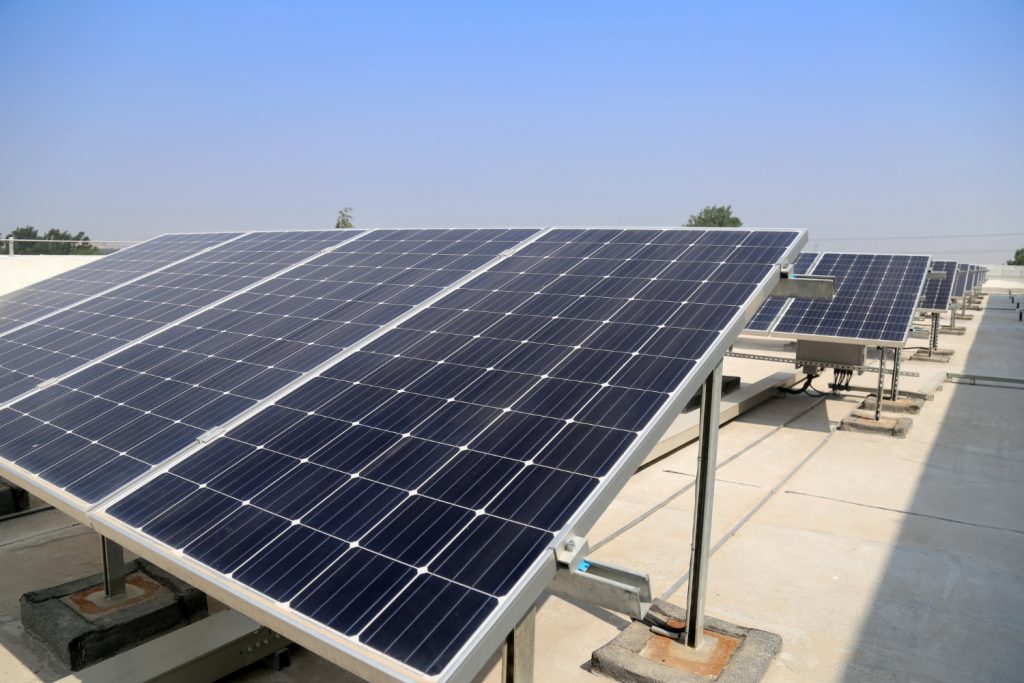
In the quest for sustainable and renewable energy sources, rooftop solar solutions have emerged as a promising technology. Harnessing the power of the sun, these systems offer a clean and efficient way to generate electricity while minimizing the environmental impact. This article delves into the world of rooftop solar solutions, and rooftop solar companies in India, exploring their benefits, challenges, and the road ahead.
The Solar Revolution: A Brief Overview
The concept of harnessing solar energy dates back centuries, but it wasn’t until the mid-20th century that solar technology began to gain traction. Over the years, advancements in photovoltaic cells and solar panel manufacturing techniques have propelled solar energy into the mainstream. One of the most accessible and effective applications of solar technology is rooftop solar solutions.
Benefits of Rooftop Solar Solutions
- Clean and Renewable Energy Source
Rooftop solar solutions offer a clean and renewable energy source. Unlike fossil fuels, solar energy production doesn’t emit greenhouse gases or contribute to air pollution. By relying on the sun’s energy, homeowners and businesses can significantly reduce their carbon footprint.
- Energy Cost Savings
Installing rooftop solar panels can lead to substantial energy cost savings over time. Solar energy systems generate electricity from sunlight, reducing the need to purchase electricity from the grid. This can result in lower utility bills and potentially even revenue through excess energy generation.
- Energy Independence
Rooftop solar solutions empower individuals and communities to become more energy independent. By generating their electricity, homeowners and businesses are less susceptible to fluctuations in energy prices and supply disruptions.
- Low Maintenance Requirements
Solar panels have minimal moving parts and require little maintenance. Regular cleaning and occasional inspections are usually sufficient to ensure optimal performance. This simplicity makes rooftop solar solutions a practical and hassle-free energy solution.
- Increased Property Value
Homes and businesses equipped with solar panel systems often experience an increase in property value. Potential buyers are attracted to the prospect of lower energy bills and a commitment to sustainable living.
Challenges and Considerations
Initial Investment:
While the long-term benefits of rooftop solar solutions are undeniable, the initial investment can be a deterrent for many. The cost of purchasing and installing solar panels, along with associated equipment, can be substantial. However, government incentives, tax credits, and innovative financing options are making solar energy more accessible.
Weather and Location Factors:
The efficiency of solar panels depends on factors such as geographic location, weather conditions, and the orientation of the panels. Areas with abundant sunlight and proper panel positioning will yield higher energy output. Cloudy days and shaded rooftops can affect energy production.
Aesthetic Concerns:
Some individuals are concerned about the visual impact of solar panels on their property’s appearance. However, advancements in solar panel design have led to more aesthetically pleasing options that blend seamlessly with various architectural styles.
Storage and Grid Integration:
Solar energy production is intermittent, as it relies on sunlight availability. Integrating energy storage solutions like batteries can address this issue by allowing excess energy to be stored for use during cloudy periods or at night. Moreover, connecting rooftop solar systems to the grid enables the possibility of selling surplus energy back to the utility company.
The Road Ahead: Innovation and Expansion
Technological Advancements:
Continued research and development in solar technology are driving innovation. Efforts are focused on improving the efficiency of photovoltaic cells, enhancing energy storage solutions, and developing new materials that can further reduce the cost and environmental impact of solar panel manufacturing.
Smart Energy Management:
The integration of smart technologies and data analytics is transforming how rooftop solar systems are managed. Homeowners can monitor energy production and consumption in real time, optimizing energy usage and making informed decisions about when to draw from the grid or use stored energy.
Community Initiatives:
Communities are exploring the potential of shared solar installations, where multiple households or businesses jointly invest in a larger solar array. This approach enables those without suitable rooftops or financial constraints to benefit from solar energy.
Policy and Regulation:
Government policies and regulations play a crucial role in shaping the growth of rooftop solar solutions. Supportive policies, such as feed-in tariffs and net metering, encourage the adoption of solar technology and promote renewable energy generation.
Conclusion
Rooftop solar solutions are a shining example of how harnessing the power of the sun can revolutionize our approach to energy production. With benefits ranging from clean energy generation to cost savings and energy independence, these systems have the potential to reshape the energy landscape. Overcoming challenges through innovation, technological advancements, and supportive policies will be essential for unlocking the full potential of rooftop solar solutions and accelerating the transition to a sustainable energy future.